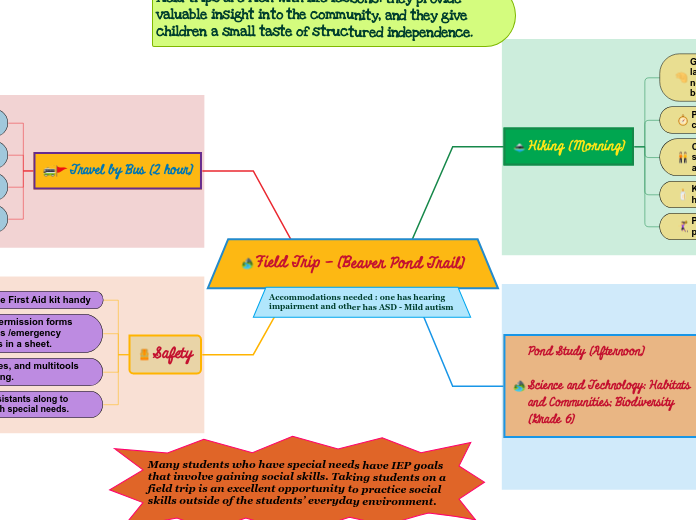Field Trip - (Beaver Pond Trail)
Hiking (Morning)
Give directions orally using sign language ; Get students with special needs acquainted with the path one day before.
Provide the students Maps and compass.
Choose buddy for the students with special needs for pair activities and assistance at the same time
Keep plenty of water and food during the hike
Play scavenger hunt there to keep participants moving and motivating.
Pond Study (Afternoon)
Science and Technology: Habitats and Communities; Biodiversity (Grade 6)
Participants will become acquainted with the characteristics of healthy pond ecosystems.
Brainstorm the types of invertebrates and vertebrates found in ponds
After study- Collect pond organisms in the jar and sketch;
Identify and describe each according to methods of breathing, locomotion and feeding.
Observe what they see and write , Encourage them to ask questions
Travel by Bus (2 hour)
Keep a count of students during the trip, allocate seat numbers to all in the bus
Preferential seating for ASD student and Hearing impairment student
Provide them with Map of the location beforehand
Provide snacks and water: Give breaks in between
Safety
Keep the First Aid kit handy
Keep the Fieldtrip permission forms that includes parents /emergency contacts of students in a sheet.
Keep batteries, knifes, and multitools required during hiking.
Take Educational assistants along to support students with special needs.
